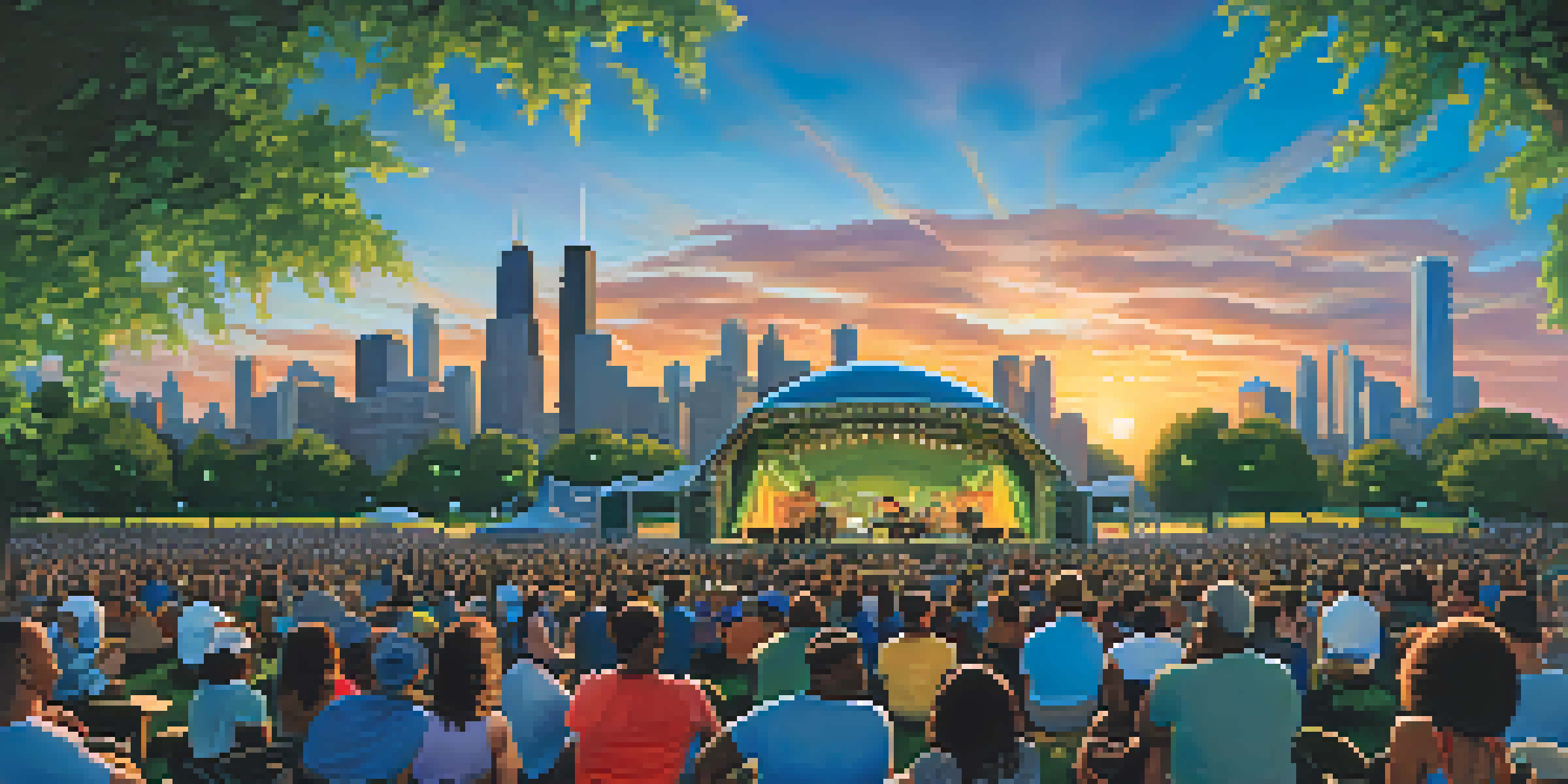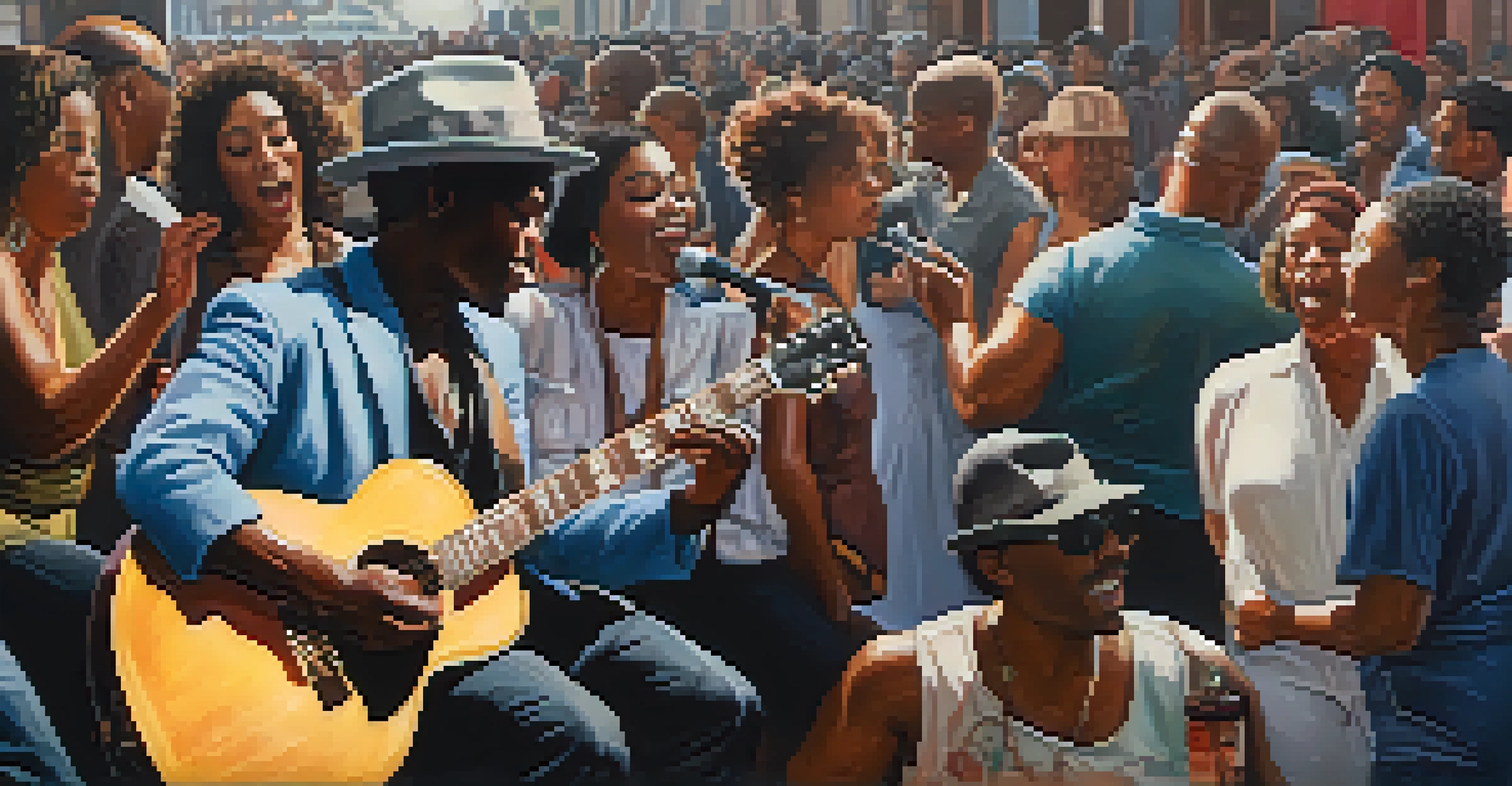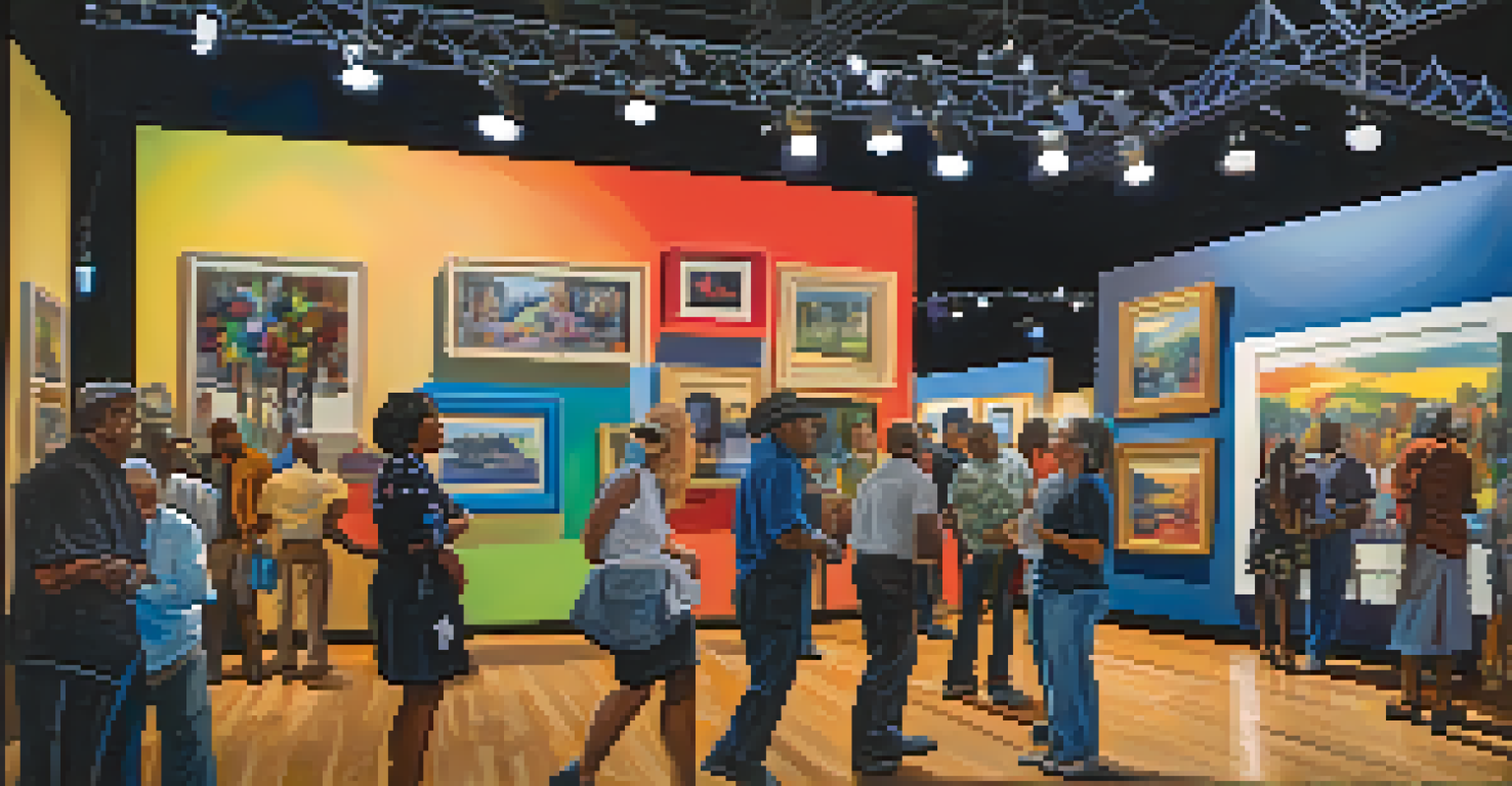Chicago Blues Festival: Celebrating the Heart of the City

The Legacy of Chicago Blues: A Musical Journey
Chicago blues is more than just music; it's a powerful narrative of the city's history. This genre emerged in the early 20th century, largely influenced by African American musicians who migrated from the South. Artists like Muddy Waters and Howlin' Wolf helped shape this sound, blending traditional Delta blues with urban influences.
The blues is a tonic for whatever ails you.
The festival not only highlights these legendary figures but also showcases the evolution of blues through generations. From electrifying guitar riffs to soulful harmonica tunes, the diverse styles within the genre reflect the rich cultural tapestry of Chicago. Every note played at the festival serves as a reminder of the city’s profound impact on the music world.
As attendees immerse themselves in the performances, they can feel the heartbeat of Chicago's streets in the music. The festival creates an environment where both seasoned blues fans and newcomers can appreciate the depth and emotion that blues music carries. It's a celebration of resilience, creativity, and community.
Festival Highlights: A Showcase of Talent
The Chicago Blues Festival is renowned for its remarkable lineup of artists, featuring both established stars and emerging talents. Each year, the festival brings together musicians from various backgrounds, ensuring a rich mix of sounds and styles. Attendees can expect everything from soulful ballads to high-energy performances that keep the spirit of blues alive.

One of the festival's highlights includes live jam sessions, where artists collaborate and create spontaneous musical magic. These sessions often lead to unforgettable moments, as musicians feed off each other's energy and creativity. It's an incredible sight to see seasoned pros sharing the stage with up-and-coming artists, embodying the festival's spirit of inclusivity.
Chicago Blues: A Cultural Legacy
Chicago blues represents a rich narrative of the city's history, blending traditional sounds with urban influences to create a unique musical identity.
Additionally, workshops and panels are hosted during the festival, offering insights into the craft of blues music. Participants can learn about songwriting, guitar techniques, and the history of the genre. These educational opportunities enrich the overall experience, making it more than just a showcase of talent.
Location, Location, Location: The Heart of Chicago
Set against the stunning backdrop of Grant Park, the Chicago Blues Festival is as much about the location as it is about the music. The park’s lush greens and iconic skyline create an inviting atmosphere that draws people in. It's hard not to feel a sense of community while surrounded by nature and the vibrant energy of fellow festival-goers.
Blues is a feeling. It's a way to express the pain and the joy of life.
The choice of Grant Park also underscores the festival's commitment to accessibility. With free admission, it opens its doors to everyone, allowing people from all walks of life to come together and celebrate. This aspect reflects Chicago's spirit of inclusivity, making it a true community event.
As the sun sets over the city, the festival transforms into a magical experience. Lights illuminate the stage, and the sounds of blues music echo through the park, creating an atmosphere that’s both nostalgic and electric. It's a place where memories are made, friendships are formed, and the city's rich musical heritage is honored.
The Role of Community in the Chicago Blues Festival
Community plays a vital role in the Chicago Blues Festival, bringing together musicians, fans, and local businesses. The festival fosters a sense of belonging, where everyone is united by a shared love for blues music. This event isn’t just a celebration of sound; it’s a gathering of hearts and souls that cherish the culture.
Local businesses also benefit from the influx of visitors during the festival. Restaurants, bars, and shops in the area often feature blues-themed promotions and events, creating a ripple effect that boosts the local economy. This collaboration between the festival and the community highlights the importance of supporting local culture.
Community and Inclusivity Thrive
The Chicago Blues Festival fosters community engagement and inclusivity, bringing together diverse audiences and supporting local businesses.
Moreover, the festival serves as a platform for social change, often addressing issues that affect the African American community. Through music, stories, and performances, artists and attendees can engage in conversations about history, identity, and resilience. It’s a powerful reminder that blues music is deeply intertwined with social awareness.
The Festival Experience: More Than Just Music
Attending the Chicago Blues Festival is an immersive experience that transcends music. The event is filled with art exhibits, food vendors, and interactive activities that celebrate the culture surrounding blues. From soul food to craft beers, festival-goers can indulge in a variety of local flavors while enjoying the performances.
Art plays a significant role as well, with various artists showcasing their work that reflects the spirit of blues music. Visitors can explore different mediums, from paintings to sculptures, all inspired by the rich history of this genre. This creative atmosphere enhances the festival, making it a feast for the senses.
The festival atmosphere is alive with joy and camaraderie, as people from diverse backgrounds come together. Whether dancing with friends or simply swaying to the rhythm, the sense of connection is palpable. It's a celebration of life, culture, and the unifying power of music that leaves a lasting impact on everyone involved.
Preserving the Blues: Education and Outreach
The Chicago Blues Festival goes beyond just celebrating music; it actively focuses on education and outreach. Through partnerships with local schools and organizations, the festival promotes blues education among younger generations. Workshops and sessions aim to inspire a new wave of musicians and enthusiasts, ensuring the legacy of blues continues.
Educational programs often include teaching the history of blues and its cultural significance. By engaging students and young artists, the festival helps them understand the roots of the genre and encourages creative expression. This commitment to education plays a crucial role in preserving the blues for future generations.
Education Preserves Musical Heritage
Through educational programs and outreach, the festival ensures the continuation of blues music by inspiring new generations of musicians and enthusiasts.
Moreover, the festival often highlights the stories of lesser-known artists who have contributed to the blues scene. By shining a light on these voices, the festival enriches the narrative of Chicago blues while fostering a deeper appreciation for its diverse heritage. It's a testament to the festival's dedication to honoring the past while nurturing the future.
Looking Ahead: The Future of the Chicago Blues Festival
As the Chicago Blues Festival continues to grow, its future looks bright. Organizers are constantly exploring innovative ways to enhance the experience for attendees while remaining true to the roots of blues music. This commitment to evolution ensures that the festival remains relevant and engaging for all generations.
Future editions may see even more diverse artists taking the stage, reflecting the ongoing evolution of the blues genre. The festival aims to embrace new styles while honoring the traditional sounds that have shaped it. This balance of old and new keeps the spirit of blues alive and thriving.

Additionally, there is a growing emphasis on sustainability and community involvement in future festivals. By prioritizing eco-friendly practices and encouraging local participation, the festival aims to leave a positive impact on both the community and the environment. It's a forward-thinking approach that aligns with the values of the city and its people.